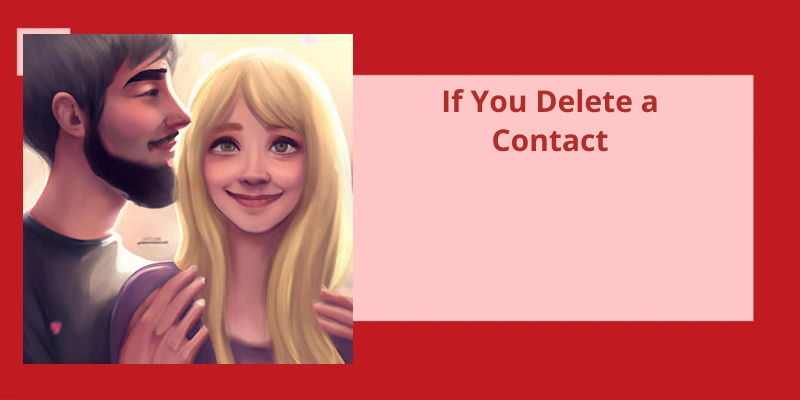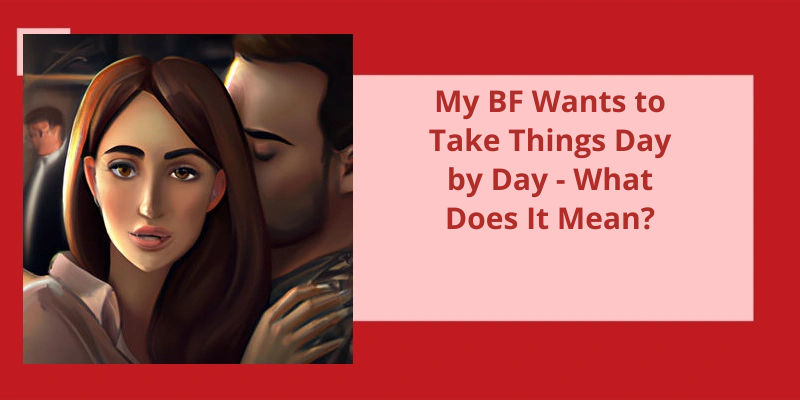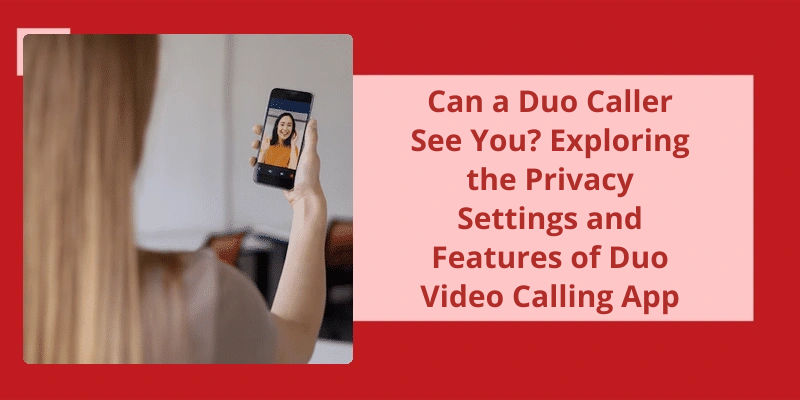In today's digital age, our contact lists are often filled with hundreds, if not thousands, of individuals. With the constant influx of new people in our lives and the ever-changing nature of relationships, it's not uncommon for us to delete a contact or two from our phonebook. But have you ever wondered what happens to the messages you've exchanged with that person? Does deleting a contact also delete the associated conversation threads? The answer might surprise you. So, what exactly does happen when you delete a Contact, and what implications does this have for your messaging history? Let's explore this topic in depth.
Does Deleting a Contact Delete the Conversation?
Deleting a contact from your phone might seem like a good way to cut ties with someone you no longer want to communicate with, but it might not be as effective as you think. The act of deleting a contact from your phone doesn’t delete the conversation thread that you’d with that person. This means that if you’d messaged them previously, the conversation will still be available in your messaging app, even if you can no longer see their name in your contacts list.
In a similar vein, it’s important to note that deleting a contact doesn’t stop that person from continuing to send you text messages if they’ve your phone number. While you might be able to block their number manually, this isn’t an automatic process that happens when you delete a contact. As such, it’s important to be aware of this fact so that you can take appropriate action if someone you no longer want to communicate with continues to message you.
It’s important to be aware of this fact so that you can take appropriate action if necessary. Ultimately, it’s up to each individual to handle these situations in the way that feels most appropriate and comfortable for them.
How to Block a Contact From Messaging You After Deleting Them From Your Contacts List
To block a contact from messaging you after deleting them from your contacts list, you can use your phone’s settings and go to the messaging or contacts app. From there, you can find the contact you want to block, open their profile, and select the option to block them. This will prevent them from sending you messages or contacting you in any way.
It’s a common misconception that deleting a message on your iPhone means it disappears completely. However, this isn’t entirely true. While the message won’t be visible to you anymore, there’s a possibility that it can still be retrieved by certain methods. In this article, we’ll explore whether someone can still see a deleted message on your iPhone and what steps you can take to ensure your privacy.
Can Someone Still See a Deleted Message Iphone?
When you delete a message on your iPhone, your device goes through a process of deleting the message from your devices memory and the backup stored in the iCloud. This, however, doesn’t necessarily mean that the message is gone for good.
Firstly, if the message is part of a group conversation, the other members of the chat might still be able to access the message. This is because the message is still stored on their devices memory and not because you didnt delete the message correctly. Your only option in this case is to ask your recipients to delete the message on their end.
Cached messages are temporary data stored on your devices memory when you access them. These temporary messages are helpful to maintain snappy performance, but they can sometimes hang around. To erase these messages, reboot your iPhone.
If you’ve iCloud Backup turned on, then the message might still be backed up in your iCloud account, rendering it visible to anyone with access to your iCloud account.
Lastly, if the message has been sent as an iMessage and has successfully gone through the Apple servers, there’s a possibility that it was archived by Apple. Apple has been known to store messages in a non-encrypted format for a brief period of time before deleting them permanently.
How to Properly Delete Messages on an iPhone to Ensure They Are Completely Gone
- Open the Messages app on your iPhone
- Find the conversation that contains the message you want to delete
- Swipe left on the message you want to delete
- Tap “Delete”
- If you want to delete multiple messages, tap and hold a message, then tap “More”
- Select all the messages you want to delete
- Tap the trash bin icon in the bottom left corner
- Confirm that you want to delete the selected messages
- Remember to also delete messages from your “Recently Deleted” folder to ensure they’re completely gone
Now that we know the consequences of deleting a contact on an iPhone, it’s important to understand how this action affects your ability to communicate with them, and what steps you can take to restore the contact if necessary. Whether it’s a friend, family member, or business associate, losing a contact can be frustrating and disruptive, and it’s important to be aware of the potential pitfalls when managing your digital address book.
What Happens if You Delete a Contact on Iphone?
Deleting a contact on your iPhone may seem like a simple task, but it can have far reaching consequences that you may not realize until it’s too late. When you delete a contact from your iPhone, it not only removes the contact from your device, but also any other device linked to the same email account. This can include your iPad, computer, or any other device you’ve signed in with your Apple ID. So be mindful of this before taking any action.
The deletion process is straightforward, but it’s important to know exactly what’ll happen when you press that button. A warning message will appear, letting you know that deleting a contact will also delete any associated data, such as call logs, messages, and previous interactions. Additionally, if you’ve synced your contacts with any third-party apps, those contacts may also be removed from those apps.
Since the contact is permanently deleted, you won’t be able to recover it unless you’ve a backup saved. This is why it’s important to regularly backup your iPhone to iCloud or any other storage device. Otherwise, you may lose important information that you may need in the future.
If the person whose contact you deleted realizes that you’ve deleted them, they may feel hurt or offended. So think twice before deleting someones contact, and consider talking to them instead and working out the issue at hand.
It’s a permanent deletion that will affect multiple devices, and you may lose important data that youll need in the future. Additionally, it’s important to consider the social consequences and speak to the person face-to-face before removing them from your contacts list. Be mindful, and think twice before taking any action that may have lasting effects.
The Impact of Deleting a Contact on Social Media Platforms Connected to Your Contacts
Deleting a contact on social media platforms can have various impacts on the connection between the user and their contacts. It can affect the user’s visibility to the deleted contact and vice versa on the platform, as well as any shared content or conversations. Additionally, it may also affect the user’s connection with any mutual friends or groups.
Source: When you delete someone’s contact number, can they still …
Now that we understand the difference between deleting and blocking a contact on iPhone, it’s important to know how to execute each action properly. Whether it’s to free up space on your phone or to cut off communication with someone you no longer wish to talk to, knowing how to delete or block a contact is essential. So, let’s dive into the steps for each method.
What Is the Difference Between Blocking and Deleting a Contact on Iphone?
When it comes to managing your contact lists on an iPhone, you may find yourself wondering about the difference between blocking and deleting a contact. While both actions can be performed from your iPhones contact list, they’ve different implications for your communication with that person.
Deleting a contact is a relatively simple action, which removes that persons name and number from your contact list. However, it doesn’t necessarily mean that you’ve deleted all communication you’ve had with that person. You’ll still be able to browse through your message history and call log, and any conversations you’ve had will remain on the other persons device.
Blocking a contact, on the other hand, has a more drastic impact on your communication with that person. By blocking someone, youre essentially telling your iPhone to prevent any messages or calls from that contact from reaching you. This means that you won’t receive any notifications from that person, and their messages won’t even be displayed on your lock screen.
Another important point to note about blocking a contact is that this action is reversible. If you change your mind, you can simply go back into your settings and unblock that person, and they’ll be able to send you messages once again. However, it’s worth noting that any messages they sent while they were blocked won’t be displayed to you retroactively – theyll simply disappear into the digital ether.
It’s also worth mentioning that blocking someone doesn’t necessarily stop them from knowing that youve done so. Depending on how youve communicated with them in the past, they may notice that their messages and calls don’t seem to be getting through – whether thats because theyre being automatically filtered into your junk folder, or theyre simply not being delivered at all.
Now that we’ve answered the burning question on whether or not deleted contacts can still send messages, it’s important to consider the implications of this feature. While it may seem like a harmless way to avoid confrontation or unwanted attention, there are potential risks involved in receiving messages from unknown sources. In the next sections, we’ll discuss some of the possible dangers of receiving messages from deleted contacts and what steps you can take to protect yourself.
Can You Still Receive Messages From a Deleted Contact?
When you delete a contact from your phone, it means that you’re no longer able to see their information and details in your devices address book. However, this doesn’t mean that you can’t receive messages from them. If someone still has your phone number, they’re able to send you a message, calls or voicemails without any problem.
Also, when you delete a contacts phone number from your phone, it doesn’t mean that the message history between the two of you is deleted as well. If you deleted the chat thread or conversation from your messaging app, it wouldnt be possible to see past messages from the deleted contact, but any messages that weren’t deleted before they were removed from your contacts list will still show up in your messaging inbox.
Another important factor to note is that when someone sends you a message from an unknown source, it’s important to proceed with caution. You should be cautious and careful because messages from unknown sources could potentially be spam or phishing attacks. Therefore, it’s always important to use your best judgment when opening messages from unknown sources.
When you block someone, the person won’t be able to communicate with you through text, calls, or voicemail. But, note that blocking someone doesn’t delete the existing messages. So if you unblock the contact later, you’ll be able to receive the messages from that person again.
Furthermore, social media platforms like Facebook or WhatsApp allows you to communicate with people who aren’t in your phones contact list or you deleted by searching for their specific profile or username for them. If the person still has your number, they can start chatting with you through the apps even if you’ve eliminated them from your phones contact list.
Deleting a contact from your phones contact list doesn’t stop the person from sending you messages via different platforms. However, blocking the person will prevent them from communicating with you.
Conclusion
In conclusion, deleting a contact may seem like a solution to unwanted messages or an outdated contact list, but it doesn’t erase the record of past conversations with that contact. Therefore, it’s crucial to weigh the potential consequences before deleting a contact and consider alternative methods such as muting or blocking to effectively manage messaging interactions. Ultimately, understanding the intricacies of contact and messaging management can help streamline communication and avoid potential miscommunications or breaches of privacy.






